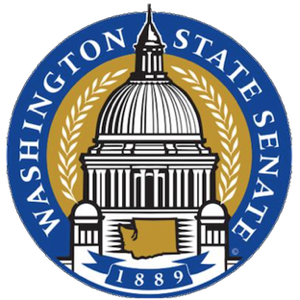The Washington State Senate Labor and Commerce Committee (WA Senate LBRC) considers issues relating to employment standards, industrial insurance, unemployment insurance and collective bargaining. The committee also considers regulation of business and professions and has oversight of commerce issues relating to alcohol, tobacco, cannabis, and gaming.
Public Hearings
- HB 2826 - "Clarifying the authority of the liquor and cannabis board to regulate marijuana vapor products."
- HB 2870 - "Allowing additional marijuana retail licenses for social equity purposes." (REVISED FOR ENGROSSED: "Allowing the issuance and reissuance of marijuana retail licenses under the social equity program.").
- HB 2374 - "Preserving the ability of auto dealers to offer consumers products not supplied by an auto manufacturer."
- HB 2474 - "Concerning sales commissions."
- HB 2511 - "Providing labor protections for domestic workers." (If measure is referred to committee.)
- HB 2412 - "Concerning domestic brewery and microbrewery retail licenses." (If measure is referred to committee.)
Executive Sessions
- HB 1056 - "Creating a task force to identify the role of the workplace in helping curb domestic violence."
- HB 2374 - "Preserving the ability of auto dealers to offer consumers products not supplied by an auto manufacturer."
- HB 2474 - "Concerning sales commissions."
- HB 2826 - "Clarifying the authority of the liquor and cannabis board to regulate marijuana vapor products."
